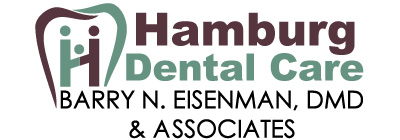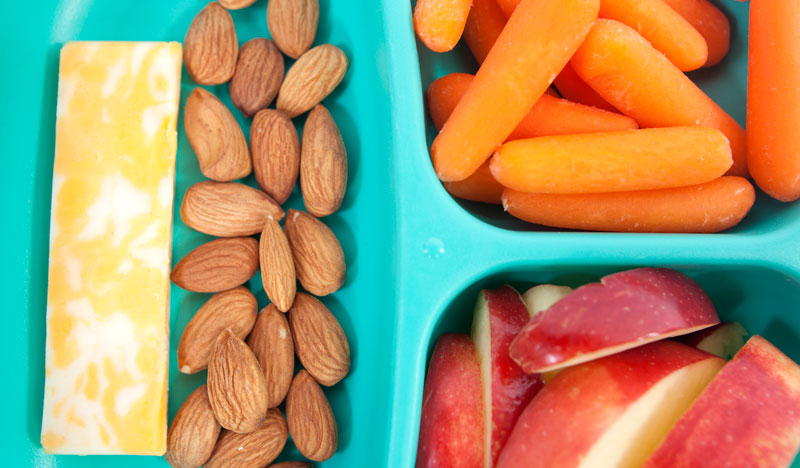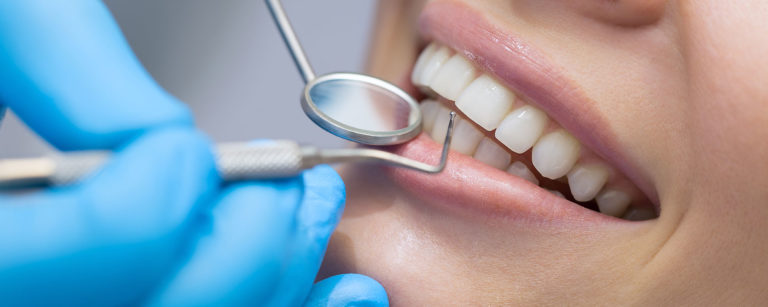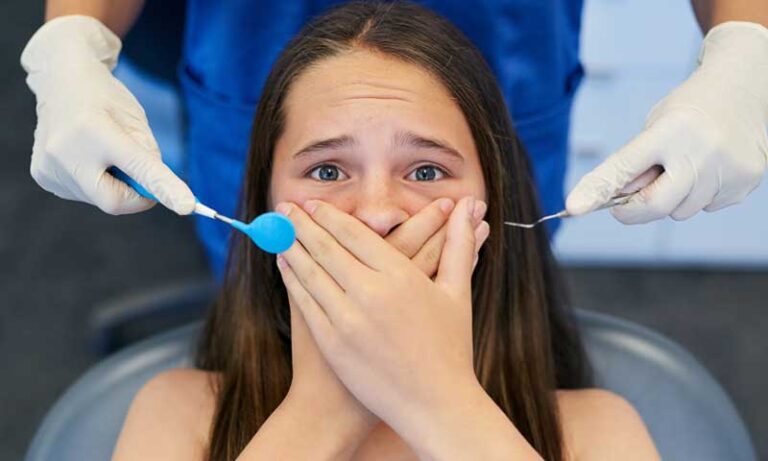Eat the best foods for oral health. Eat foods that are rich in vitamins and nutrients and your body will thank you. How many times have you heard that? Well, it’s true! And your oral health is an important part of your health.
There is a huge connection between your oral health and what you eat. The foods you eat can affect the health of your teeth and gums. If you eat too many sugar-filled foods or non-nutritious foods, you could be at risk for tooth decay.
Luckily, we have your oral health and happiness in mind. Here’s a list of foods you can eat to boost your oral health:
Kiwi Fruit
All fruits contain vitamin C. This is basic science usually learned early on. But, did you know that kiwi is the fruit that ranks the highest as far as over-all vitamin C content?

It cannot be emphasized enough that vitamin-C is essential for healthy teeth and gums. Vitamin C keeps the collagen in your gums at the proper level. It does this by keeping out the harmful bacteria that can lead to tender, painful gums, and gum disease.
Beside those facts, they taste awesome as well!
Sesame Seeds
Sesame seeds are another one of nature’s little miracles. The seeds are an excellent source of calcium. They are also great at sloughing off tooth plaque as you munch away on them.
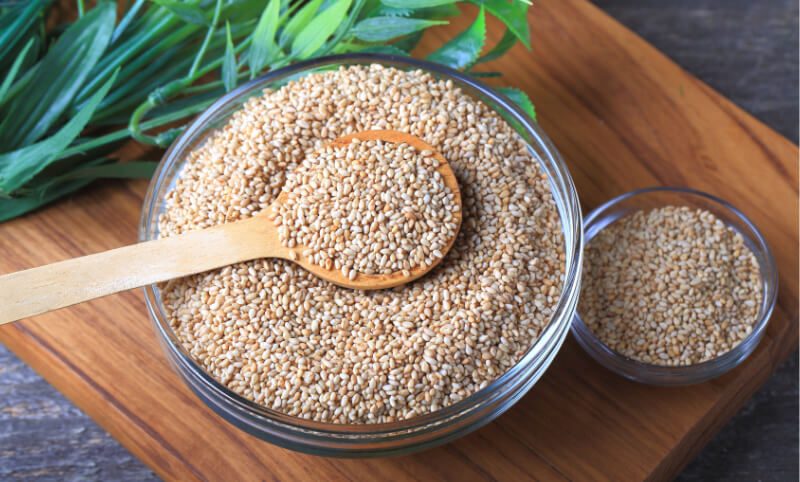
Try using them as a topping on a salad with leafy greens, carrots, and other vegetables. Your teeth and gums get the health benefit while you enjoy the taste. Healthy and tasty is the perfect combination.
Onions
Could something that gives you bad breath be good for oral health? Yes, and onions fall into that category. This is because of the amount of powerful antibacterial sulfur compounds found within.
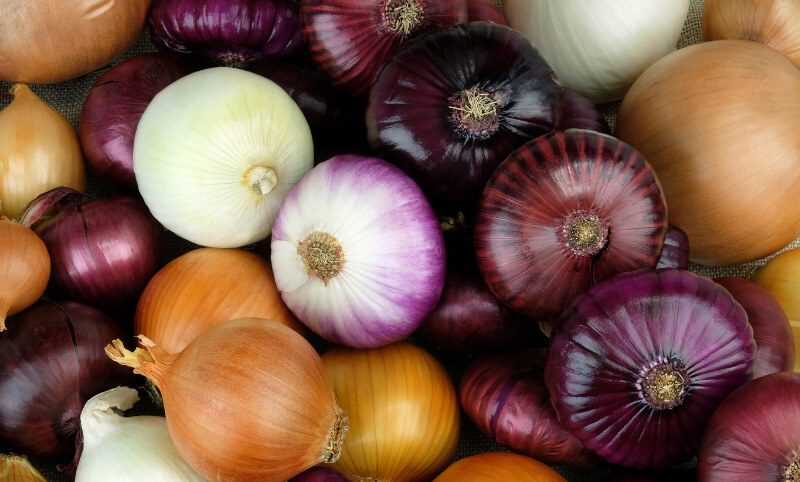
To get the full scope of benefits, try eating uncooked onions. Their compounds are stronger when raw.
Raisins
These sweet little gems are quite good for your oral health. Raisins contain phytochemicals such as oleanolic acid.

Oleanolic acid is a known prohibitor of two different types of oral bacteria. Both lead to cavities, tooth decay, and gum disease.
Sweet Potatoes
Sweet potatoes contain vitamin A which is essential for proper maintenance of tooth enamel.

Vitamin-A is also needed for healing any torn or otherwise damaged gum tissue.
Sugarless Gum
Gum might seem like the type of sticky food you’d avoid when trying to maintain your dental health. But sugarless gum has many redeeming qualities.
When you chew, you produce saliva which helps rinse away acid made by bacteria in the mouth. Saliva also helps produce calcium and phosphate which strengthen teeth.

Although not all sugarless gum is equal. You should avoid certain citrus or sour flavors, as they might hurt your teeth. Stick to traditional flavors like mint or cinnamon.
Black and Green Tea
Black and green tea have compounds called polyphenols. In a nutshell, they slow the growth of bacteria on the teeth. This can aid in the development of gum disease and cavities.

Tea stops the production of bacteria from clumping together. Which leads to the creation of plaque and tartar. Not only can tea improve health, but it can also help battle bad breath.
Milk
Everyone knows the benefits of milk for bone health. But milk benefits oral health as well by helping to neutralize the acid in your mouth from plaque buildup.

Keep in mind, adding milk to sugary cereal will have the opposite effect. Instead, drink a glass and skip the cereal.
Oats
Oats can significantly improve our oral health. Getting your daily dose of oats helps the body process blood sugar. This means a lower risk of developing gum disease.
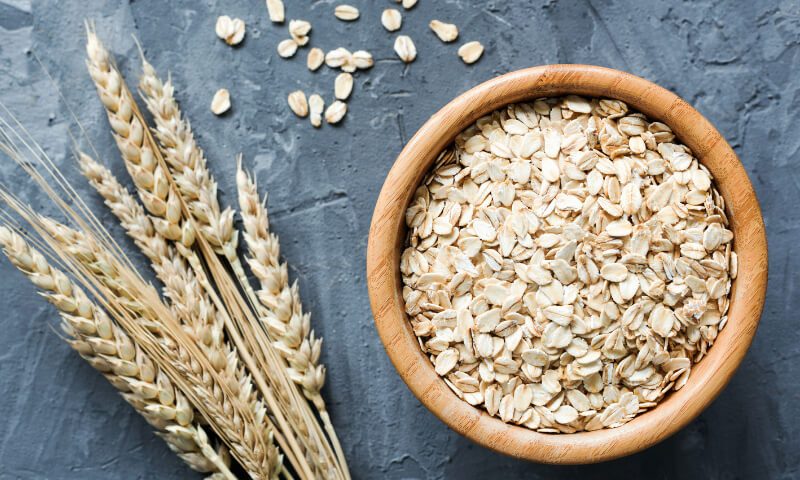
Oats are also a healthy option for general well-being. So, it’s a good idea to start adding them into your diet for a myriad of health benefits. Try adding barley, brown rice, or other whole grains to your meals each day.
Cranberries
Like tea, cranberries contain polyphenols. They help keep plaque at bay and prevent it from sticking together.

Cranberries tend to be tart, so some options, like juice, may contain added sugar. Get the real stuff, with no added sugar, so you can reap the full benefits.
Garlic
The anti-bacterial properties of garlic are quite famous. The biggest reason for that is because garlic contains allicin.

Which can help fight tooth decay and dental disease. People have used garlic for oral pain relief for over a thousand years.
Broccoli
This vegetable performs two jobs for our teeth. Broccoli gives teeth a natural cleaning with their fibrous crunch. But it also provides essential nutrients like vitamin C, sulforaphane, and beta-creatine.

Broccoli is great for bone and blood health. Broccoli is also high in iron, which our teeth absorb when chewed.
Fatty Fish
Fatty fish helps protect tooth enamel and reduces tooth decay. It also provides many essential nutrients that assist in the delivery of calcium to teeth.
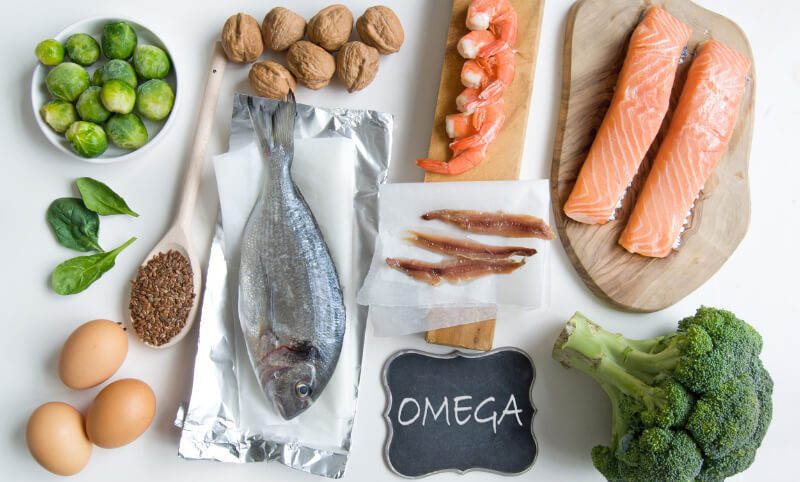
Fatty fish contains Omega-3 fatty acids which reduces the risk of periodontal disease. Omega-3 fatty acids are also terrific for your heart health.
Water
This one should come as no surprise. Although most people do not drink enough water. It’s essential for oral health, and it helps keep teeth clean by sweeping away debris every time you drink it.

Many studies recommend drinking 15 cups of water a day for men, and 11 cups a day for women.
Whole Grain Foods
The bacterial breakdown of sugars into acid causes cavities to form in teeth. Processed grains and sugars break down into acid. This is the reason sugar is so dangerous.
Whole-grain foods contain antioxidants as well as vitamins and minerals. They are also a great magnesium supplement. Magnesium protects tooth enamel and helps keeps teeth strong.
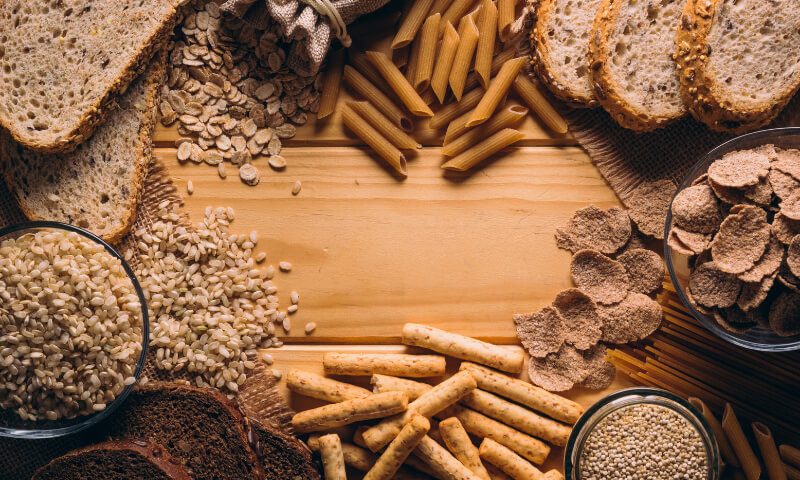
Whole grained foods also contain vitamin E that can reduce inflammation. They also lower your risk of developing gum disease.
Mint
Mint kills bacteria that cause bad breath and leaves behind a fresh scent. It has many anti-inflammatory effects and properties as well.

When consumed post-surgery, mint helps to reduce swelling and speed up recovery time.
Cinnamon
Cinnamon has many healing benefits. People all over the world use cinnamon for its potent anti-inflammatory powers. It can also help to fight toothaches.

The oils that are in cinnamon also have anti-fungal properties. This makes cinnamon a great aid in killing bacteria in your mouth.
Yogurt
Yogurt does more than satisfy your mouth with its tasty flavor. It contains a high amount of calcium which helps strengthen your teeth as well as your bones.
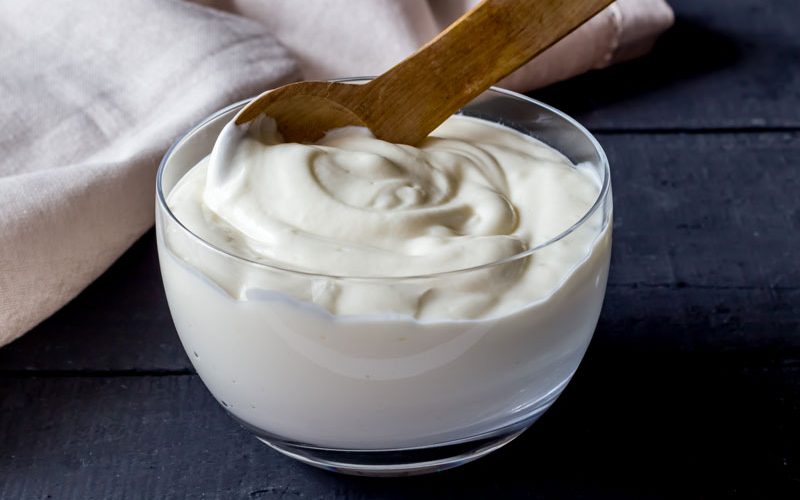
Eating yogurt also helps prevent gum disease. According to a study published in the National Library of Medicine, healthy bacteria found in yogurt protect your gums from gingivitis and periodontal disease.
Leafy Greens
Leafy greens, such as spinach, lettuce, and arugula are also good for your oral health. They contain a lot of vitamins and minerals that strengthen your tooth enamel. Tooth enamel is important because it protects your teeth from cavity-triggering acids.
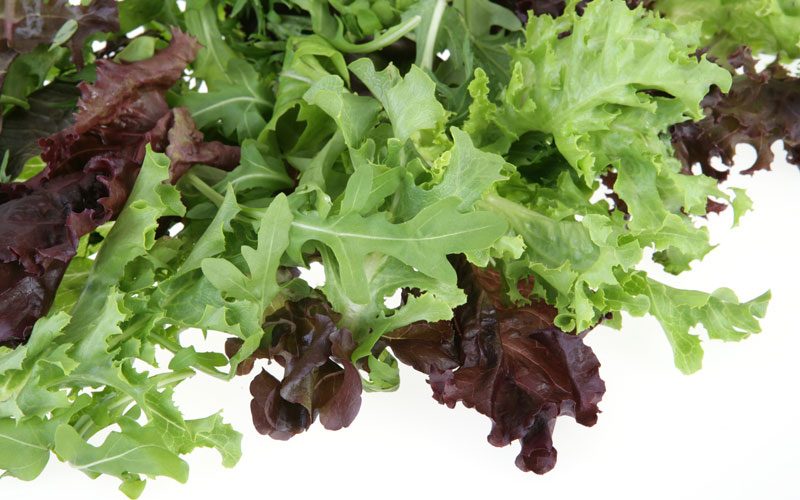
Leafy greens also contain folic acid, which prevents gum disease and reduces inflammation.
Carrots
Carrots are one of the greatest cavity-fighting vegetables. They are the perfect natural toothbrush due to their ability to clean teeth. When combined with saliva, they can help wash away food particles, plague, and stain-causing bacteria.
Carrots also contain vitamin A and keratin. These amazing nutrients help prevent dental decay by strengthening delicate tooth enamel.

Celery
Another food that is good for your oral health is celery. Chewing a long fibrous stalk of celery can help clean your teeth and give your gums a workout in the process.
The saliva produced while chewing, acts as your mouth’s self-cleaning agent. Saliva scrubs your teeth and neutralizes harmful bacteria in the mouth.
Almonds
Almonds are another one of the best foods for oral health. These nuts contain less sugar, meaning less plaque will accumulate on your teeth.
The protein and calcium in almonds will help strengthen your teeth. As well as prevent bacteria from causing cavities and gum disease. Bonus – Almonds are easy to include in your meal plan.
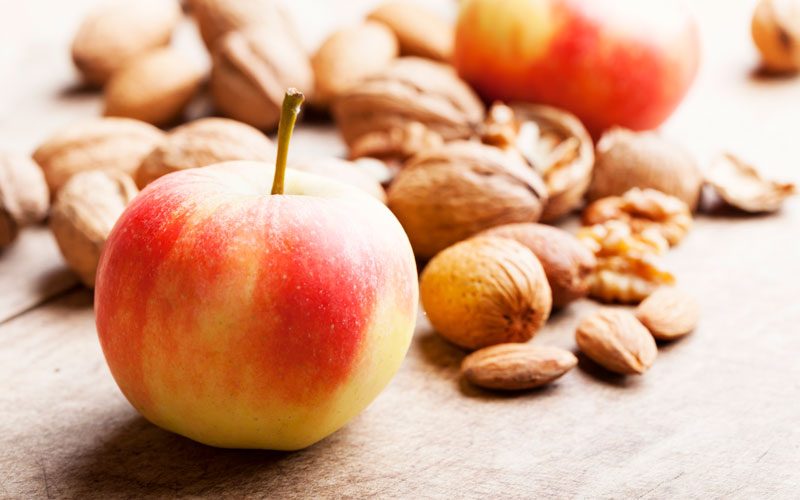
Apples
Apples are known for their amazing oral benefits. Chewing the fibrous parts of the fruit massages your gums and increases saliva flow in the mouth. Plenty of saliva removes plaque trapped between teeth and reduces cavity-causing bacteria.
The vitamin C in apples also offers great benefits. Vitamin C helps keep your gums healthy and reduces bleeding from periodontal disease.
Cheese
Cheese is good for your oral health, particularly your teeth. It contains high levels of calcium and phosphate, which are essential minerals that strengthen your teeth and bones.
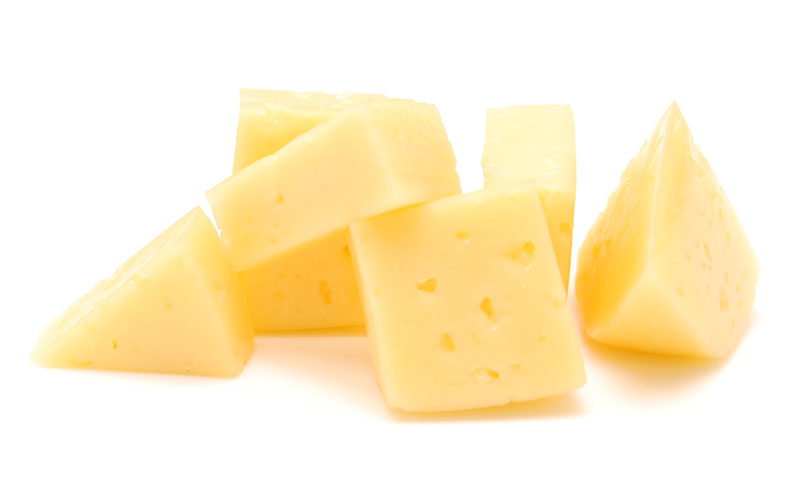
Research by the American Academy of General Dentistry shows that eating cheese stimulates the production of saliva, which balances your mouth’s pH level. Balancing your mouth’s acidity levels lowers your risk of tooth decay.
Begin Your Journey to a Healthy, Beautiful Smile Today
Are you looking for the right dentist who can help you improve your oral health? Look no further than Hamburg Dental Care. We service dental patients in the Hamburg, NJ area. This includes Franklin, Sussex, and Hardyston.
Contact us today to schedule your initial consultation.
Read More-The Oral Care Guide for 2021
